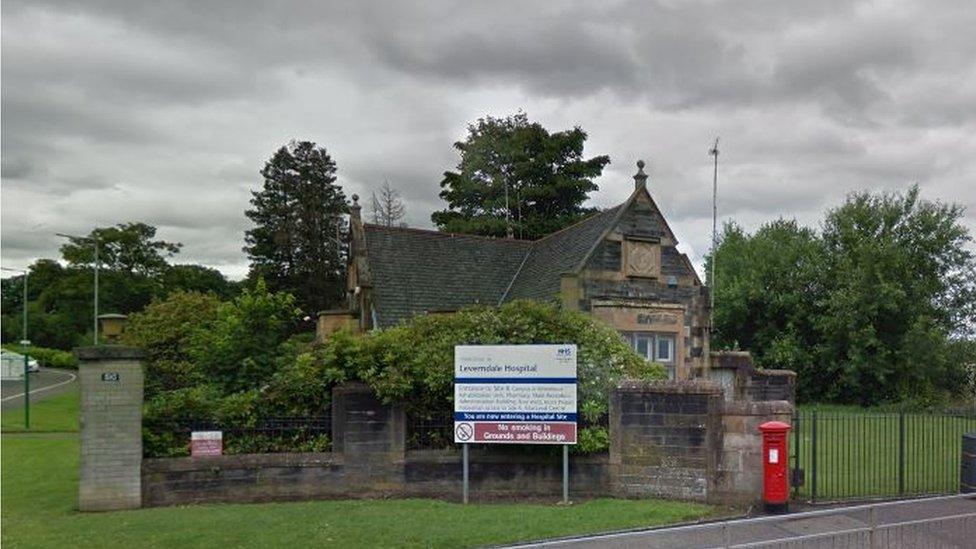Railroad to recovery: Trains and trowels put former addicts back on track
- Published
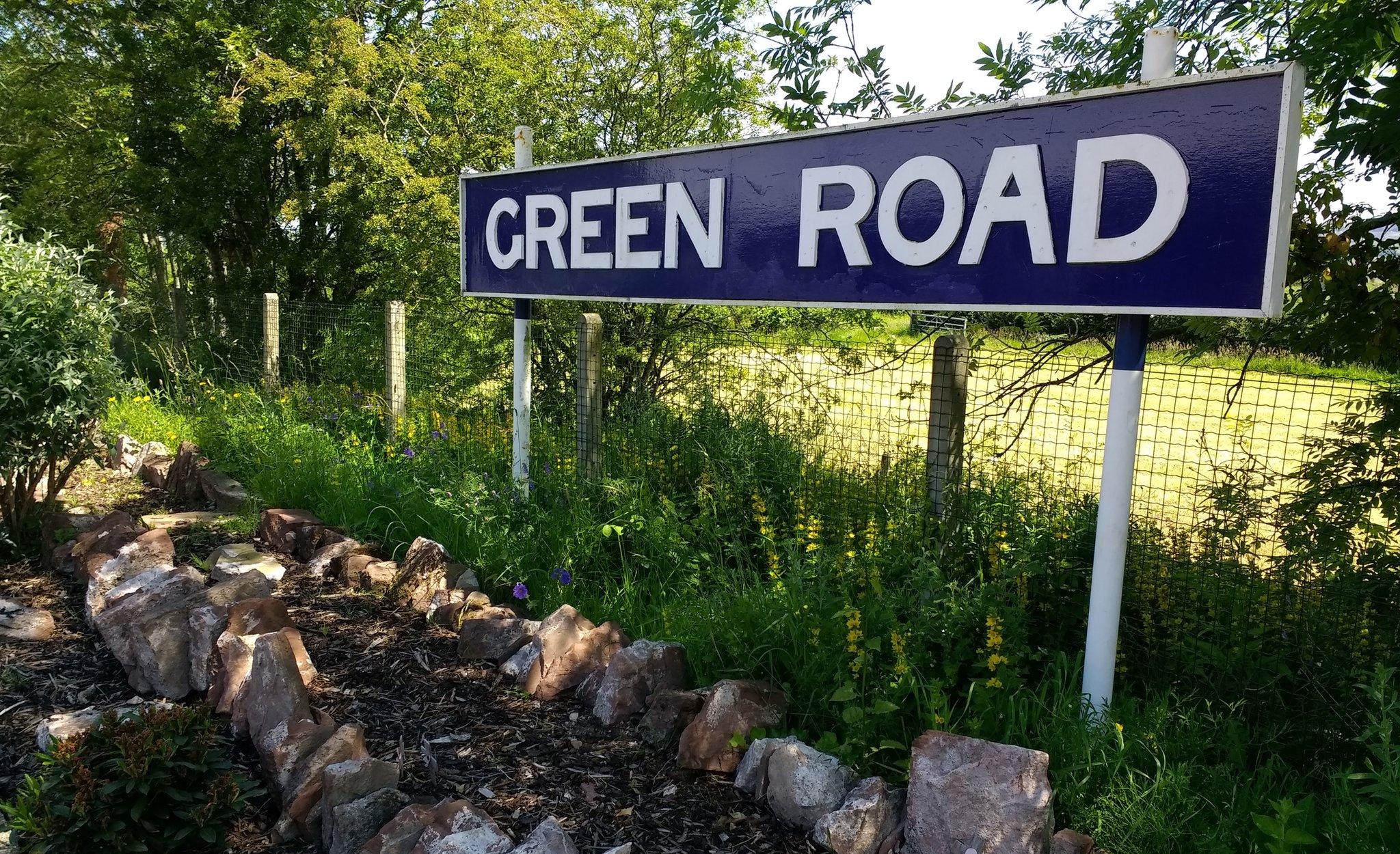
Green Road station is living up to its name
Before the pandemic, a group of recovering addicts took part in a unique rehabilitation project, sprucing up a tiny train station in rural Cumbria. But lockdown, tiers and restrictions meant that, for the past year, the branch line stop has had to fend for itself.
On a gloriously sunny June day back in 2019 Phil was nearing the end of his therapy.
Initially, he had balked at the idea of gardening as a means of recuperation but he had come to regard the weeding, planting, painting and mending as "a bit of peace after a lot of chaos".
For some of the recovering drug users and alcoholics on this scheme, a trip to Green Road station would once have been as unlikely as a journey to another world. It lies on the Cumbrian Coast Line which skirts the Irish Sea within feet of the beach. Views from the train are stunning and the destination isolated and peaceful.
Many of those making the weekly train trip from Stanfield House, a Turning Point, external-run rehabilitation centre in Workington, had come from places significantly less peaceful. The beauty of the rural location and the satisfaction of doing something useful was alien to them.
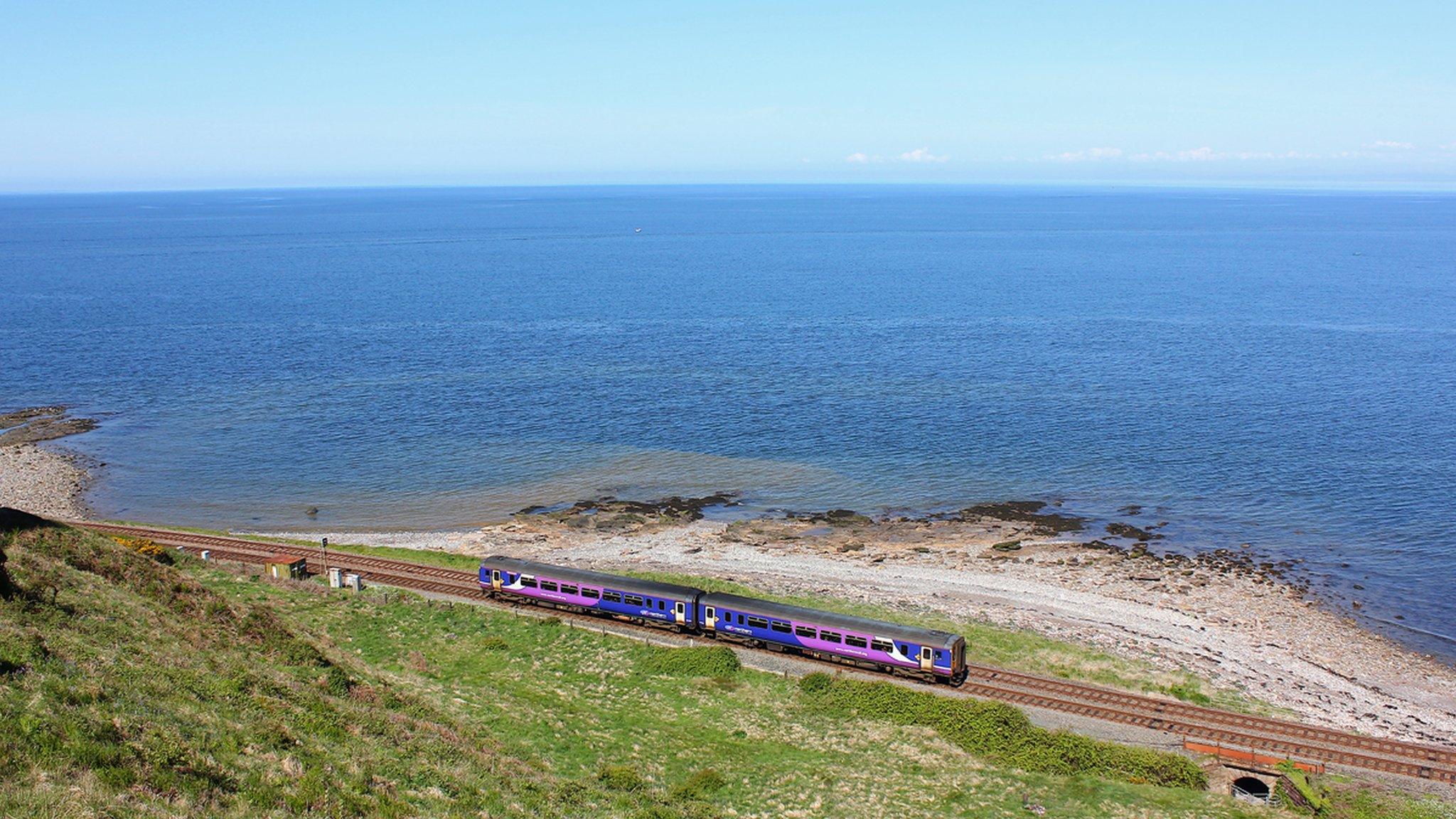
The Cumbrian Coast Line is noted as one of the most scenic railway routes in Northern England
Project team leader Emma Pooley regards the regular journeys to Green Road as part of the therapy. "Yes, you've maybe been on a train a million times, but when was the last time you were on it sober?" she tells her clients.
When we meet on the station platform she is trying to identify a plant that has mysteriously appeared. She decides the newcomer, possibly a sunflower, must have been donated by someone in the little village nearby. The locals had embraced the project, Emma said.
While she inspected the plant, a young man hovered behind her, holding a cup full of brown paint and looking worried. It was Nathan who, at only 22, was one of the youngest on the programme. His job was to paint a picture on a roller blind, but he was finding excuses: he did not know how to draw a hill, he said, and he would run out of paint.
This is the problem, Emma explained. They have no confidence. People have been telling them they cannot do things their whole life. Nathan had gravitated towards addicts because they are very accepting, she said. Which, if no-one else in your life is, can be dangerously attractive.
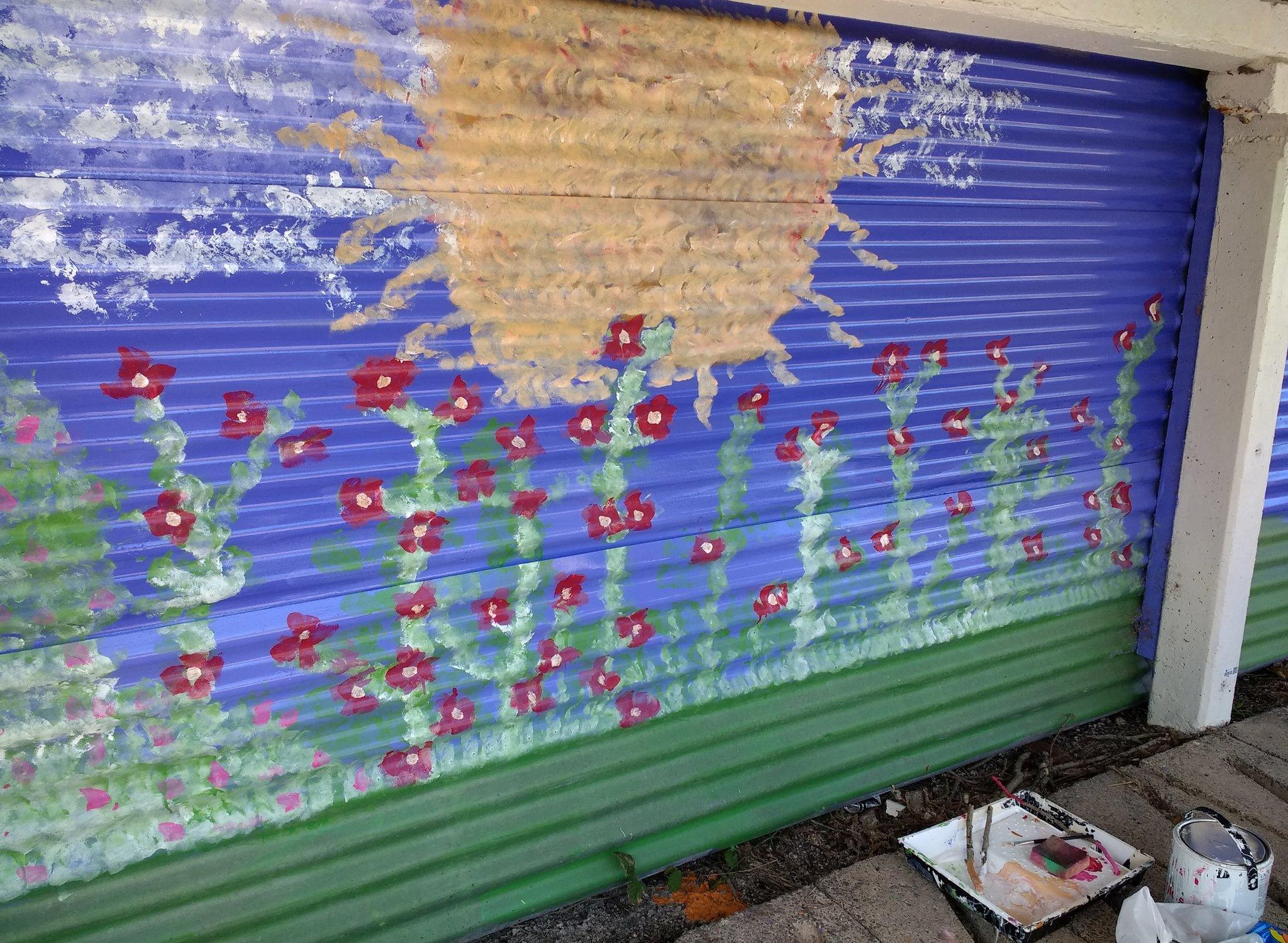
Men on the project are encouraged to find confidence in painting outdoors
For some of the men involved, Green Road was the first place they had worked outdoors and they were not keen.
They did not see the value in it until they actually got there, said Kate Rimmer, then leader of the support team. But they were not given a choice. Taking care of Green Road, and not letting people say they couldn't, was part of the process.
Much to the surprise of some, they learned to love it and found a camaraderie, Kate said. Even Phil, the 30-something sceptic, had taken others under his wing and shown them the ropes.
"I've learnt to like it," he laughed. "It's just confidence building, isn't it? It's just a start back. Getting on the trains again, just getting ready for work again afterwards."
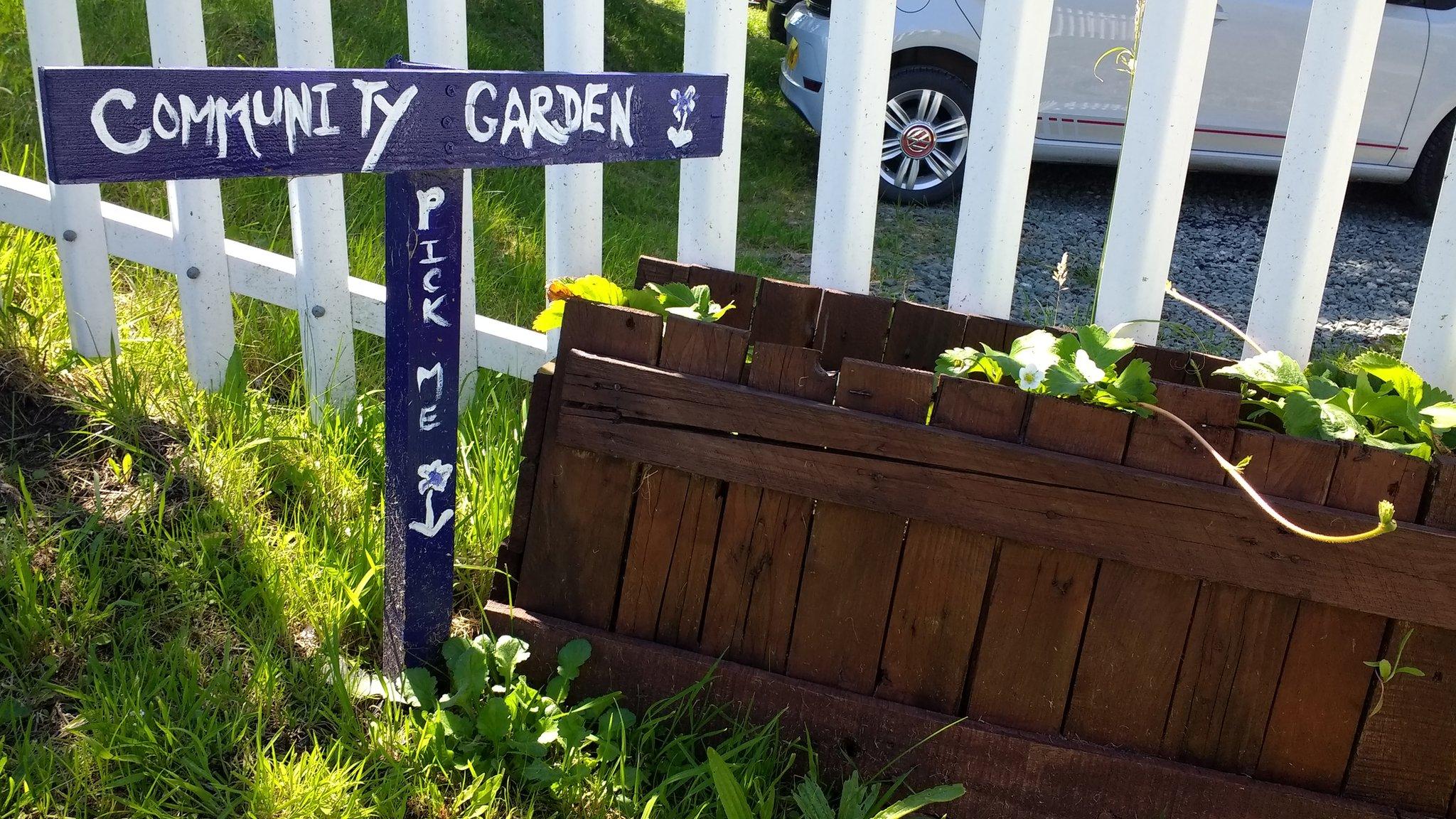
Their jobs include painting and maintaining the station, filling bird feeder, tending plants
The men took care of the station in a way they had been unable to take care of themselves, with lives consumed by drugs, alcohol dependency, depression, anxiety, psychosis and schizophrenia.
There had been homelessness, crime and "cyclical prison sentences" but Emma stressed they saw "every walk of life" on the scheme. Managers, undergraduates, solicitors and brick-layers have all passed through.
They even had a botanist once, which was particularly handy for gardening, Emma joked. "The mix is amazing and how these guys bond regardless of backgrounds is outstanding."
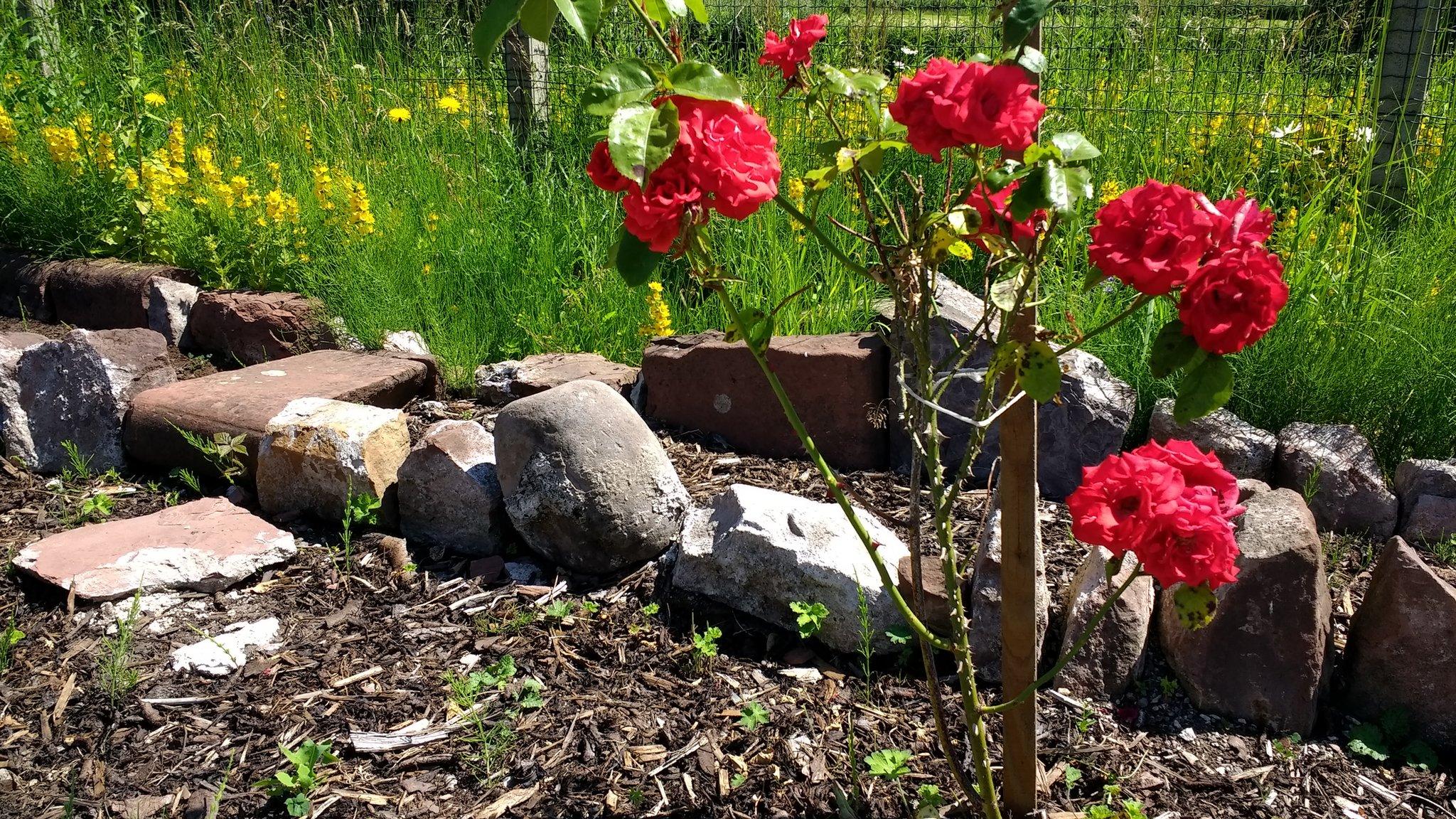
There was a botanist on the programme once, which was useful, the staff say
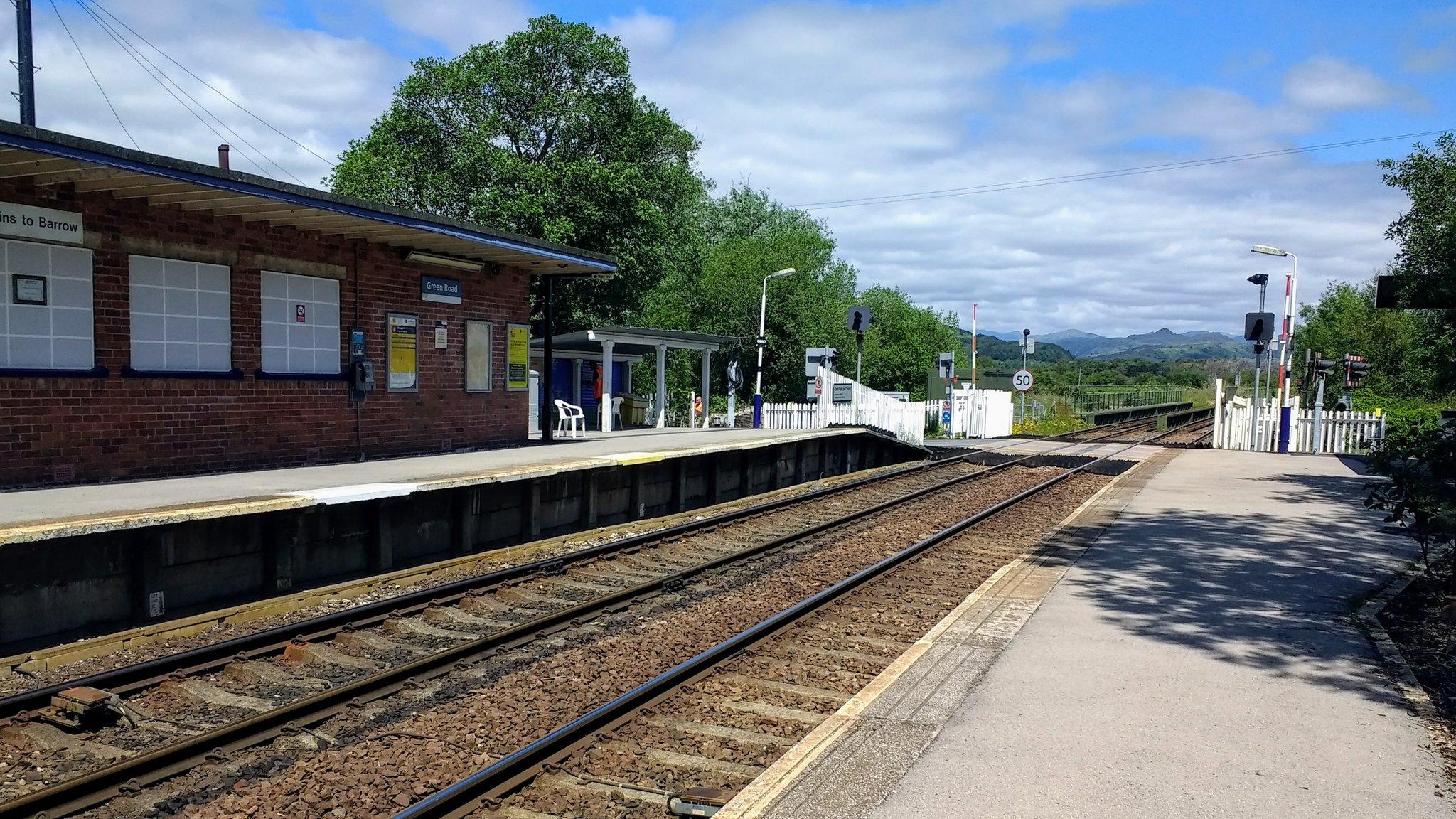
Train company Northern gives the project free local train passes and helps with the cost of tools and plants
The work also helps the men to sleep well. For most of the Stanfield House residents a chaotic life mired in drugs and alcohol has broken their natural sleep pattern, external.
"When they come in they really struggle with sleep, which is detrimental to their emotional and mental health," Emma said.
"Rehab is hard. So a day like this where you're sat on a train, looking at the beautiful surroundings all the way down, doing a piece of work here, having something to be proud of, the fresh air, the journey - they always sleep on a Thursday."
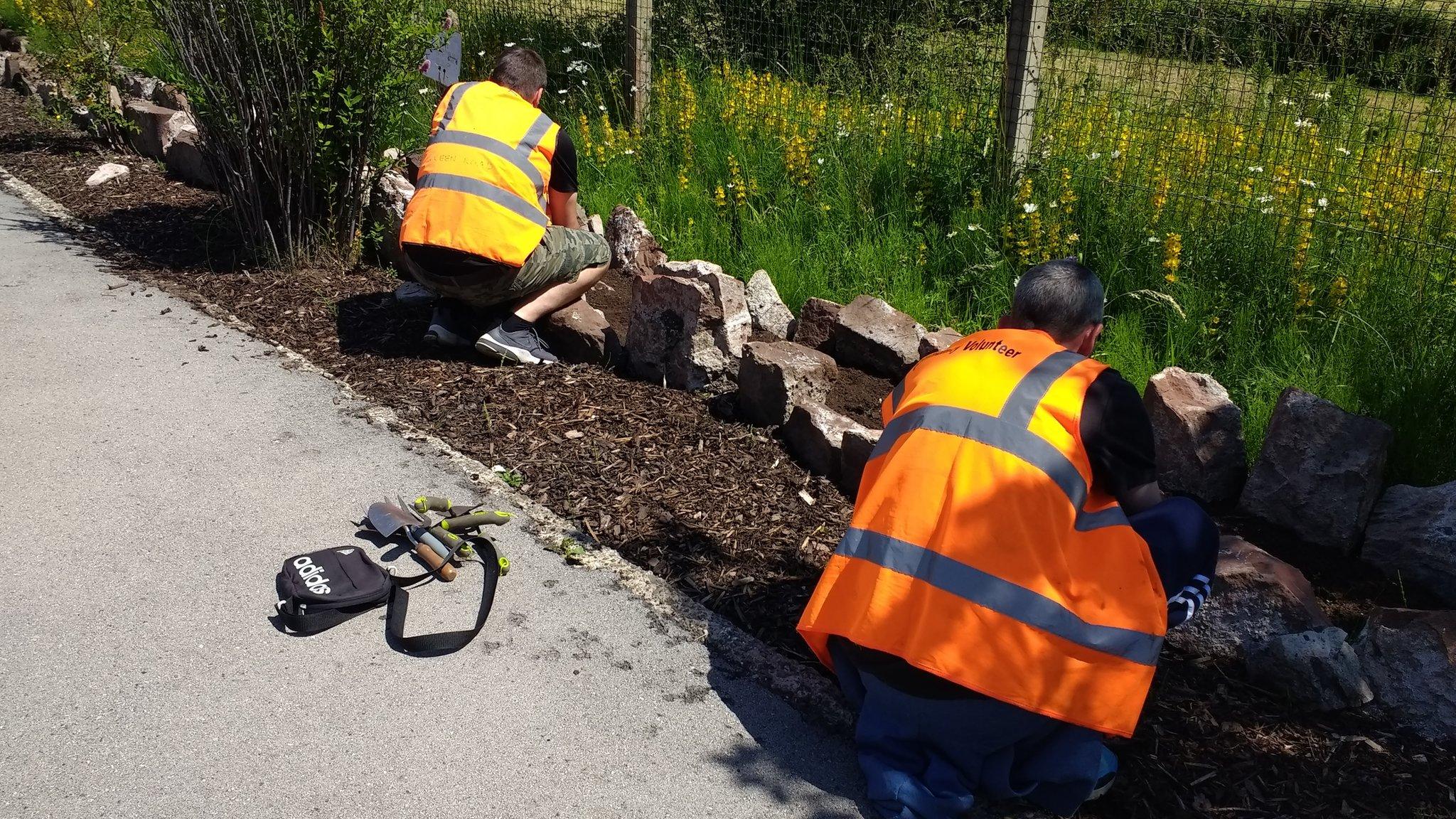
Many of the men have not done manual work outdoors before
The hour-and-a-quarter journey to Green Road allowed a time to pause and reflect on the world outside the train window. Dean looked forward to it each week. "It's really nice scenery: the coast line all the way along, the mountains on the other side - it's nice," he said.
Kate believed it brought something integral to the rehabilitation. "I've worked in substance misuse and homelessness services for around 10 years and I've never known an initiative like this," she said. "What it brings to our residents is a sense of freedom, a sense of peace and a sense of normalisation.
"It's seeing the sea, the fells and birds that they've never seen before, watching the lambs play in the spring."
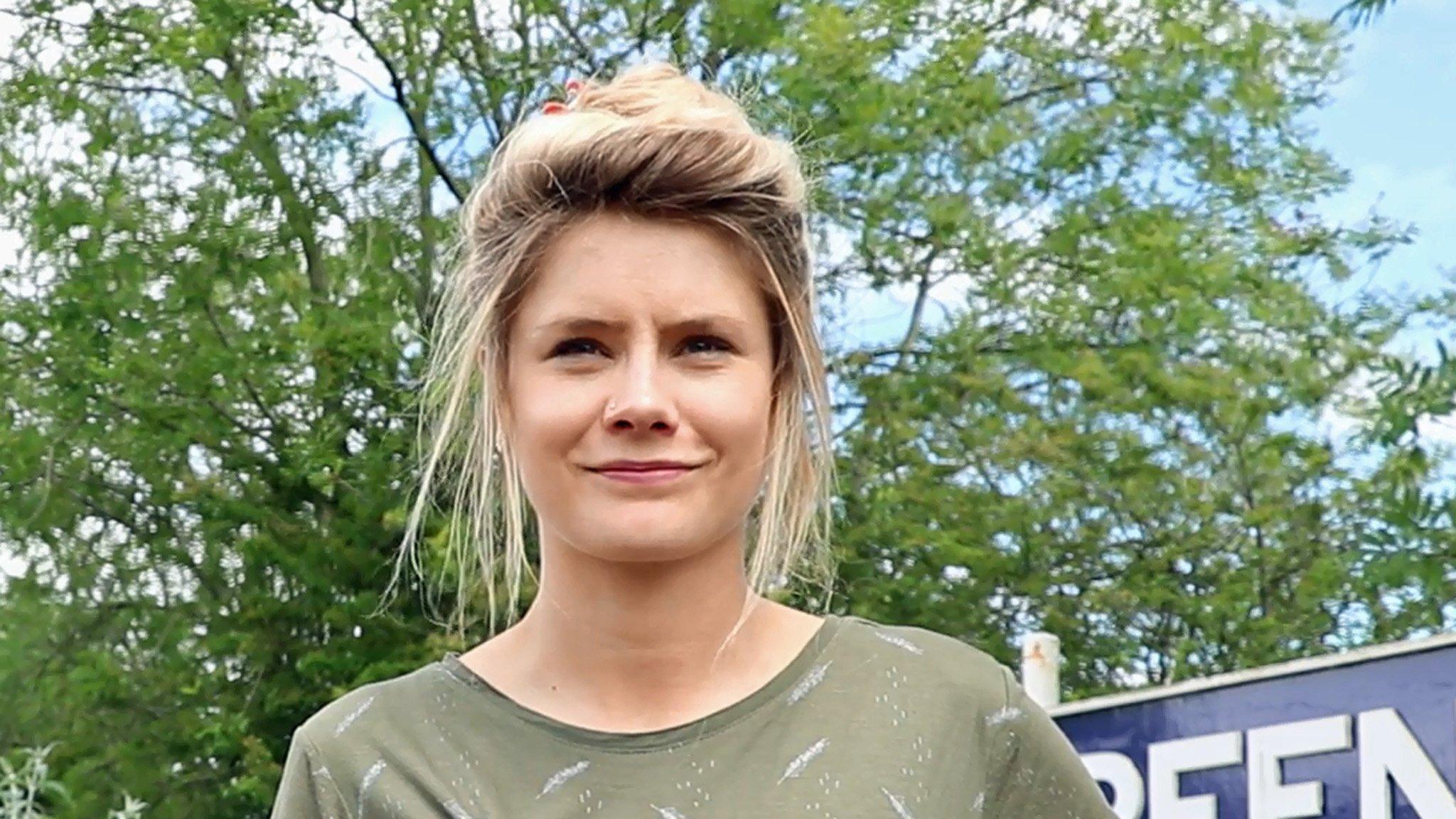
Kate Rimmer said she had never worked on a project like it
The idea came to Laurence Hillard, former chair of the Cumbrian Coast Community Rail Partnership, as he watched a group of Stanfield House residents repainting a fence at another railway station.
"You can't get anything more mundane than painting a fence," he said. But the effect was clear: those involved felt they were doing something good, giving something back. "We realised then just how much this whole concept could help the rehabilitation process."
The project has been welcomed by those living nearby, some have even provided the men with tea and biscuits as they worked. In fact there had been "no negative reaction whatsoever" from the community, Mr Hillard said.
Jack Giles, 82, who lives up the road the station, said the work had been "greatly appreciated" by local people. "We were just delighted that the station hadn't been allowed to go to wrack and ruin," he said.
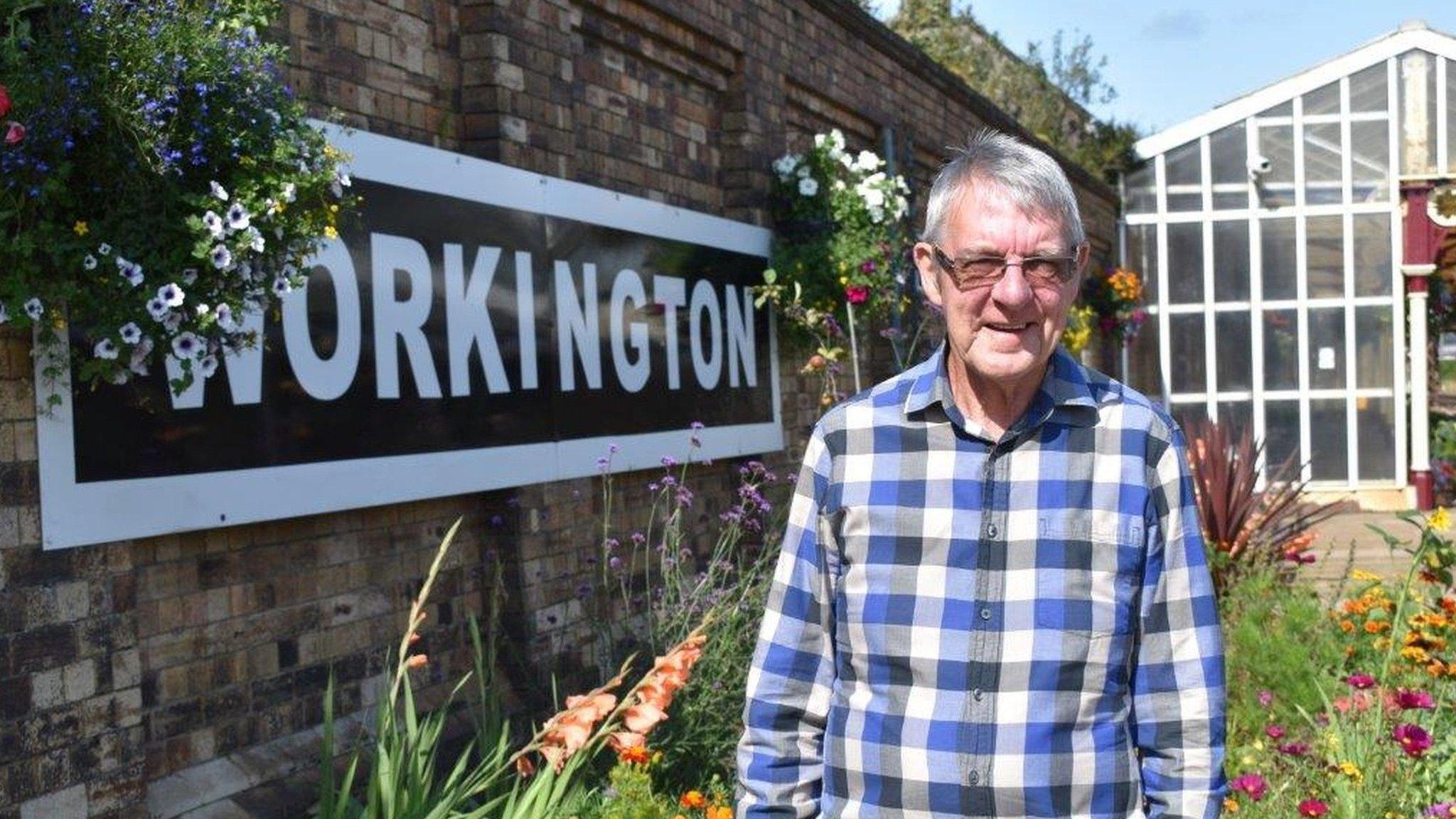
Laurence Hillard, the architect of the Green Road scheme, believes "people are all that matter"
The Department for Transport (DfT) has highlighted the project, external in its community rail strategy as a beacon of diversity and inclusion. A spokesperson said it "helped improve lives, stations and their local communities, and we fully support train operators and the charity sector working together on such innovative schemes".
Schemes where criminals "pay back" through community work at stations are well established, but the department knew of no others which include labour as part of rehabilitation therapy.
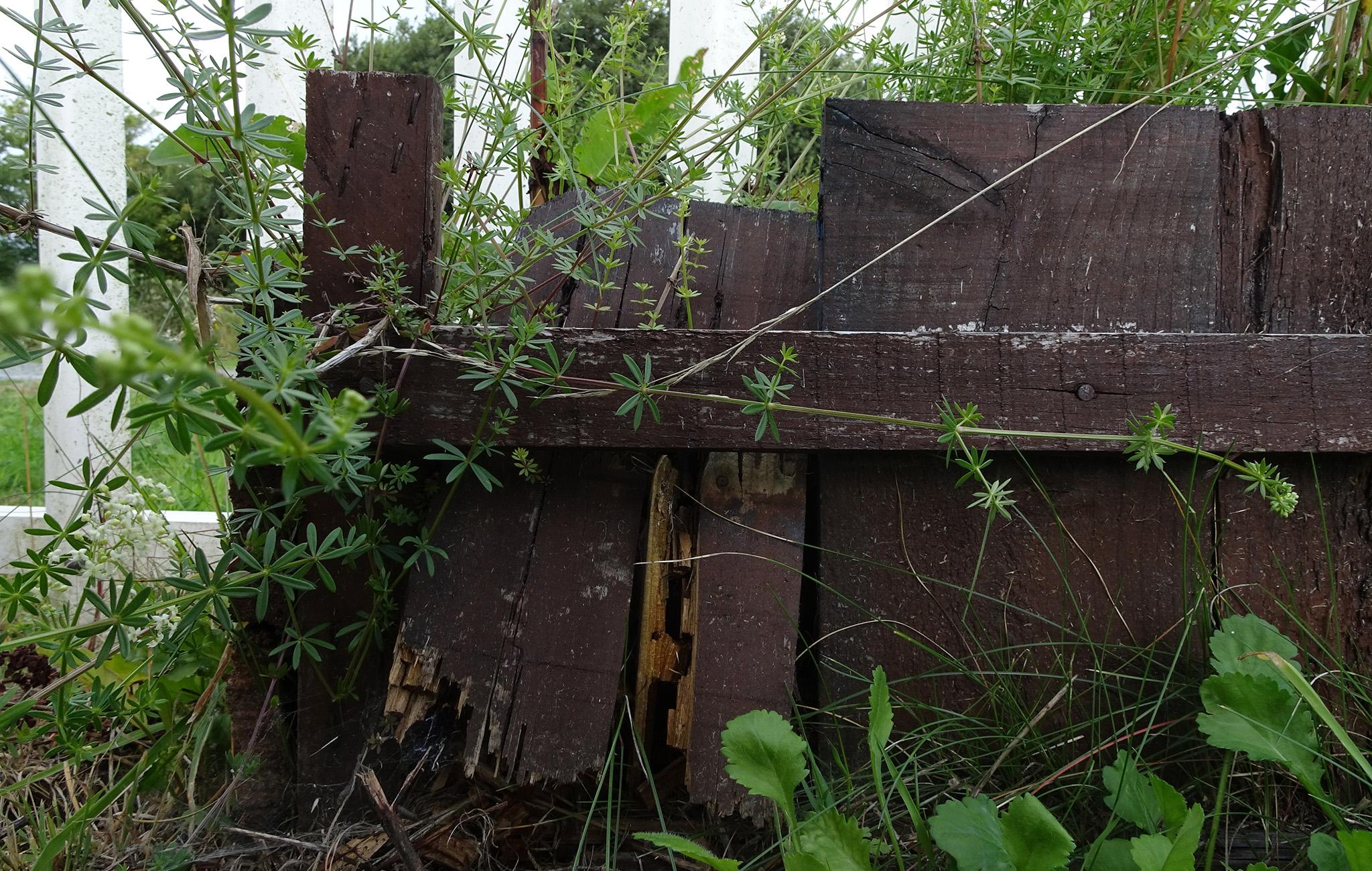
Without the weekly care the weeds have taken over
It was the nature of rehab that meant the residents were well adapted to face the pandemic's restrictions, Emma told me, two years after we first met. They already worked within a firm structure of rules and curfews and were "very accepting of it".
Visits to Green Road had continued for a while in 2020 with limits on numbers but the ban on non-essential public transport travel brought the project to a halt. Stanfield House residents lost their therapeutic journey and the freedom their free train passes had given them.
Untended, the station has become overgrown. "Nature has just taken over," Emma said. But the new cohort of residents appreciate the "blank canvas" and the chance to try new things.
"When it was under control I think you were quite, OK, we'll just do weeding," she says.
"It's actually quite fresh to start again."
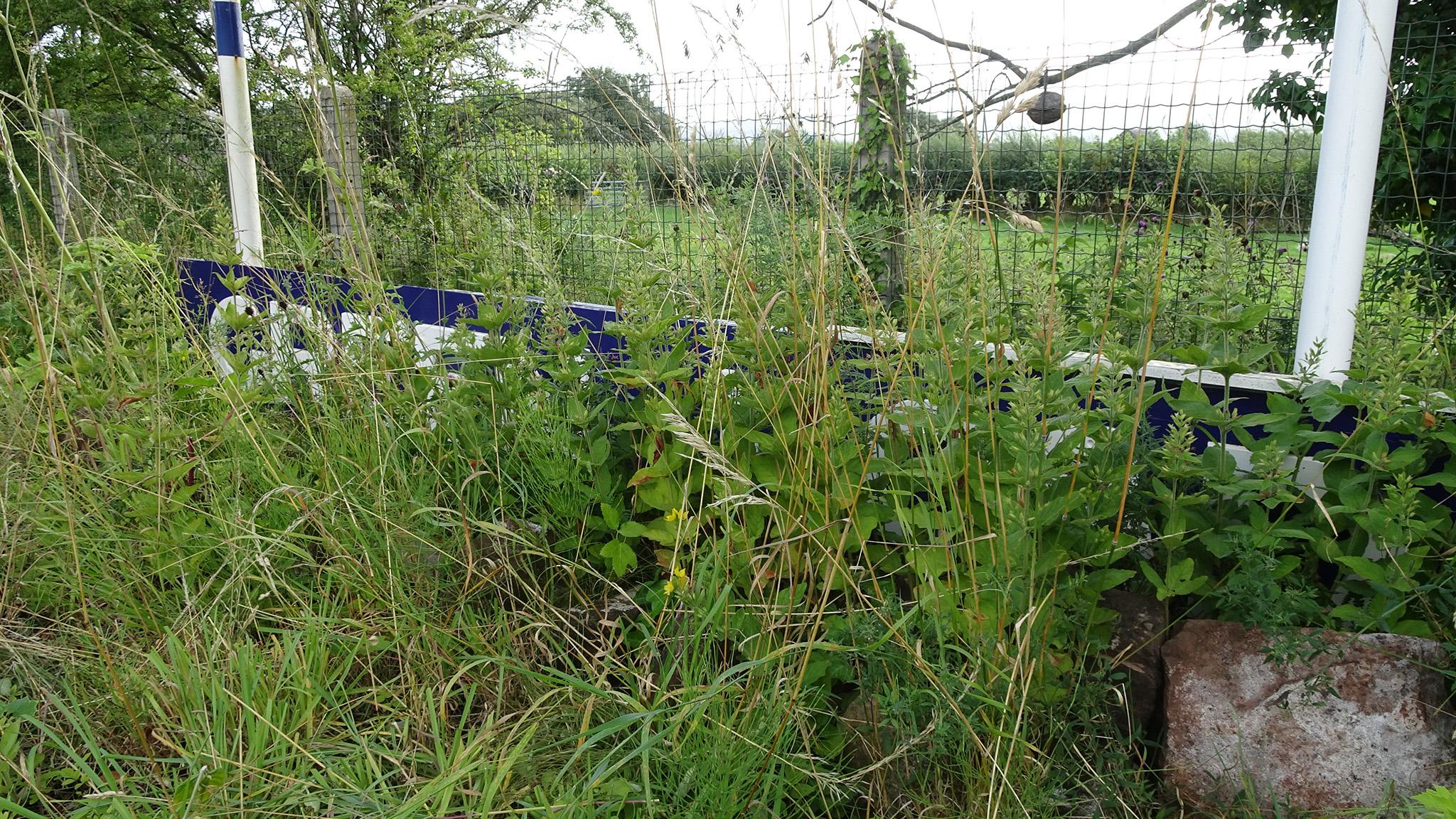
Even the station's sign has succumbed to the enforced neglect
Some names have been withheld to protect the identities of those taking part in the project.
Follow BBC North East & Cumbria on Twitter, external, Facebook, external and Instagram, external. Send your story ideas to northeastandcumbria@bbc.co.uk, external
- Published8 May 2019

- Published24 April 2019
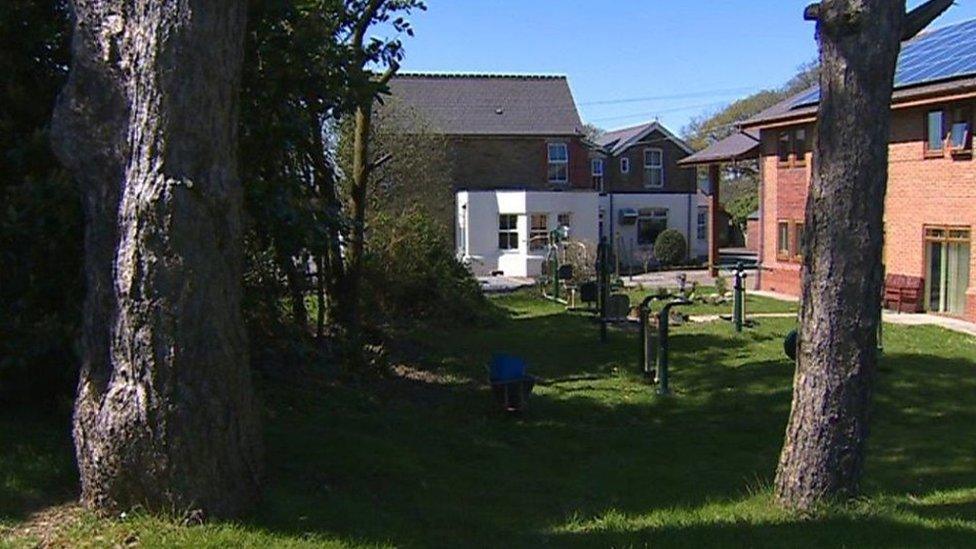
- Published7 February 2019

- Published6 October 2018
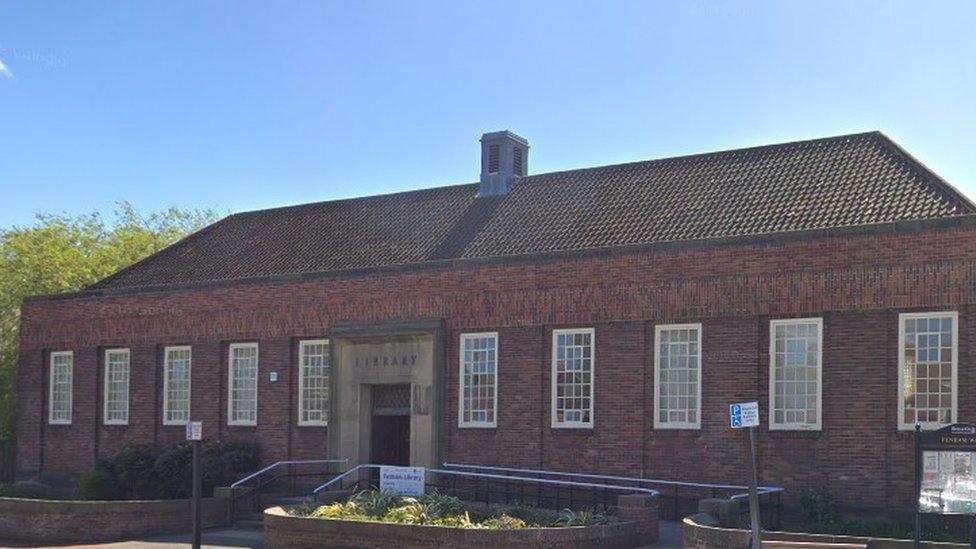
- Published11 September 2018
